LEWISTON — Students from Lewiston High School and Bates College are working with Finding Our Voices, a Camden-based nonprofit, to raise awareness about intimate partner violence among young people.
On Tuesday, the students met with Finding Our Voices founder and president Patrisha McLean at Lewiston High School to kick off the domestic abuse awareness nonprofit’s poster campaign titled “This is Not Love.”
The posters feature the voices of 25 people ages 13 to 24, most of whom are from Maine, giving their firsthand account of the intimate partner violence they have experienced. The accounts are anonymous to protect the minor participants’ privacy.
McLean said Tuesday that 130 high schools and colleges or universities from across the state had ordered posters. Lewiston High School ordered more posters than any other school in the state.
McLean, a photojournalist, launched Finding Our Voices in 2019 with a exhibit at the Camden Public Library featuring portraits she had taken of 14 women from her community who had experienced domestic abuse. McLean is a survivor of domestic abuse. Three years before she started Finding Our Voices, her husband of 29 years was convicted of domestic abuse, according to the nonprofit’s website.
Last year, Finding Our Voices launched its first poster campaign, “Breaking the Silence,” featuring portraits and quotes from 43 women ages 18 to 82. Each poster had a QR code where people could connect to resources and submit their stories.
“The first (campaign was) definitely not anonymous,” McLean said Tuesday. “The whole idea (was) to get our faces and names out there and stories, so it was very public,”
Sophie Ham, 22, a senior at Bates and president of the Lewiston college’s Public Health Initiative, said, “There’s a lot of advocacy that needs to be done spreading the word,” especially among teenagers, that intimate partner violence can be more than physical abuse.
“There is a big emotional part of it that isn’t recognized or talked about to be harmful,” she said.
Emily Robert, 17, a high school senior who helped hang posters Tuesday, said a lot of her friends are in unhealthy relationships.
“There’s a lot of controlling and like, constant phone calls or being like, ‘where are you,’ like, ‘send me a picture where you are, you can’t walk with this guy,’ or threatening themselves like if they get upset or cheated on or something like that,” Robert said.
“I feel like it’s important, especially for my friends, to understand that that’s not normal,” she said.
The high school’s director of student services, Rachel Moore, said students don’t necessarily identify themselves as being in an abusive relationship, which is why awareness campaigns such as “This is Not Love” are so important.
“But the things that they say definitely are showing unhealthy relationship patterns that are starting at a young age,” she said. “So my hope is that by bringing them more information they can recognize these patterns and correct them while they’re still young and forming.”
Ham and fellow Bates senior Emily DiBartolo, 21, said they see a lot of opportunities for college and high school students to connect on these issues.
“I feel like in high school is typically your first relationship and if you experience something like this in your first relationship, it’s easy to think that’s normal or that it’s kind of — that might be how you define love in the future,” which makes it easy to fall into patterns, Ham said.
College students, while still close in age to high school students, may have more dating experience or themselves been in an abusive relationship in the past, she said.
“It’s (easier) for a high school student to feel more like a companionship with a college student than maybe an adult or teacher.” Ham said. “It’s like more of a friendship than it would be, like a different power dynamic where it might be easier to get these messages across.”
It also goes the other way. DiBartolo said she and Ham learned more about teenage relationship dynamics just from spending the morning with the high school volunteers.
“A lot of the stuff they were saying I had no idea that that sort of, that type of abuse existed, that it manifests itself in that way and this certain age,” she said.
“And I think we can offer each other a lot in terms of how to solve these sorts of issues. We need to know how they operate within different age groups,” Ham said.
Send questions/comments to the editors.


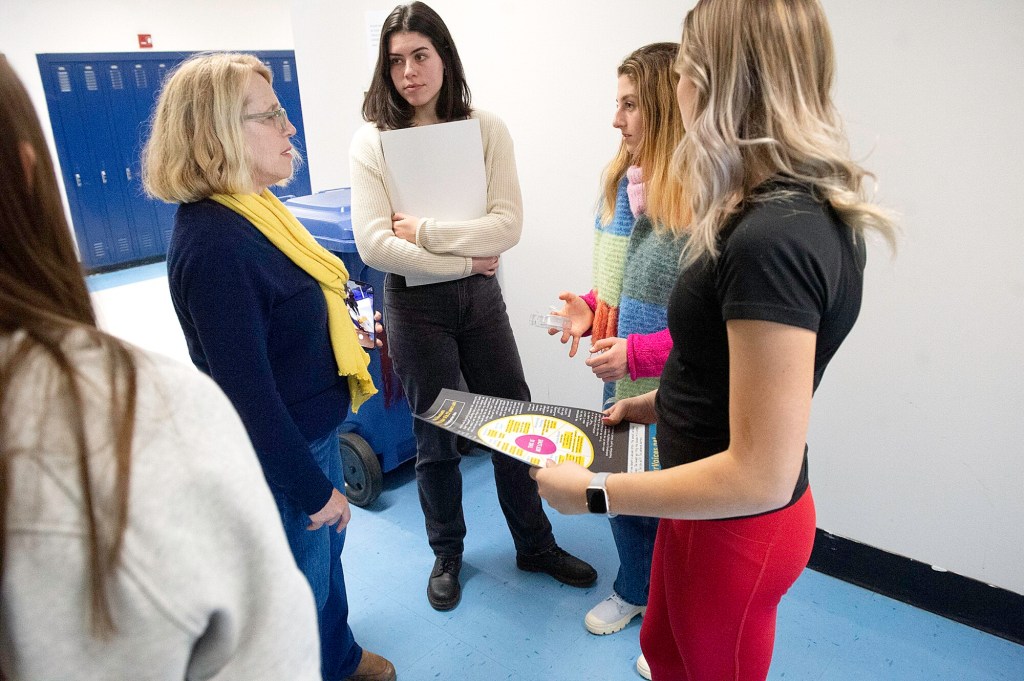
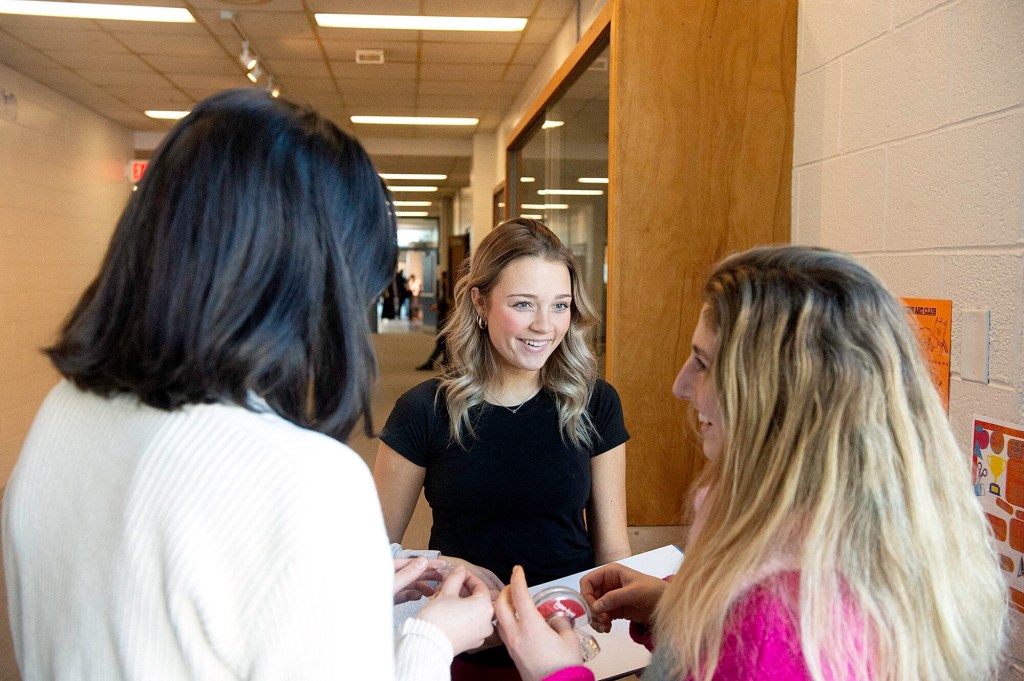
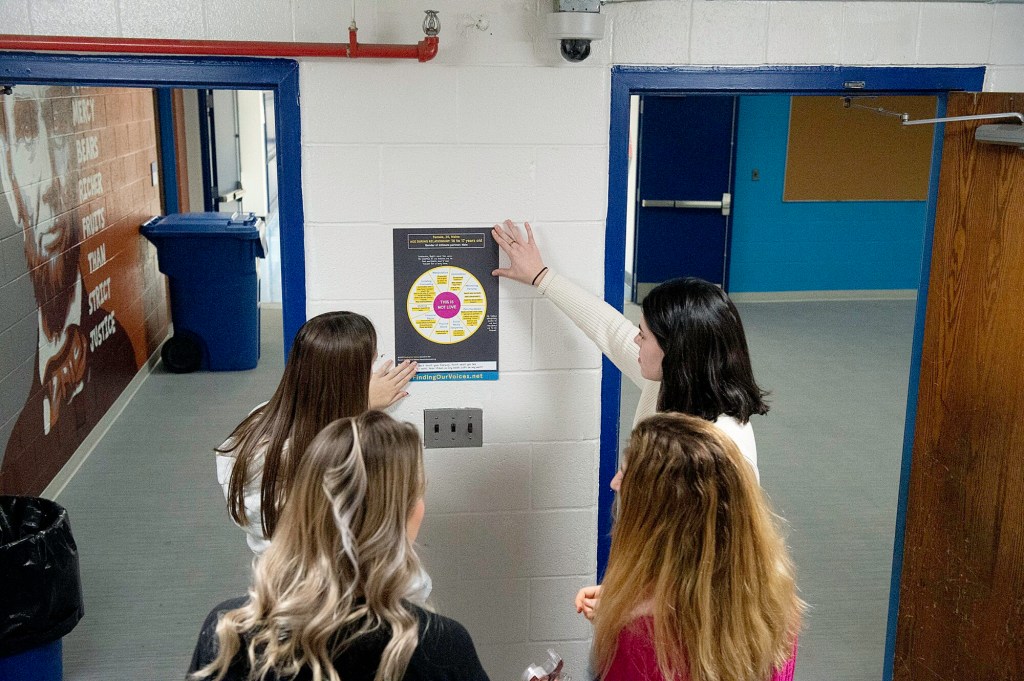
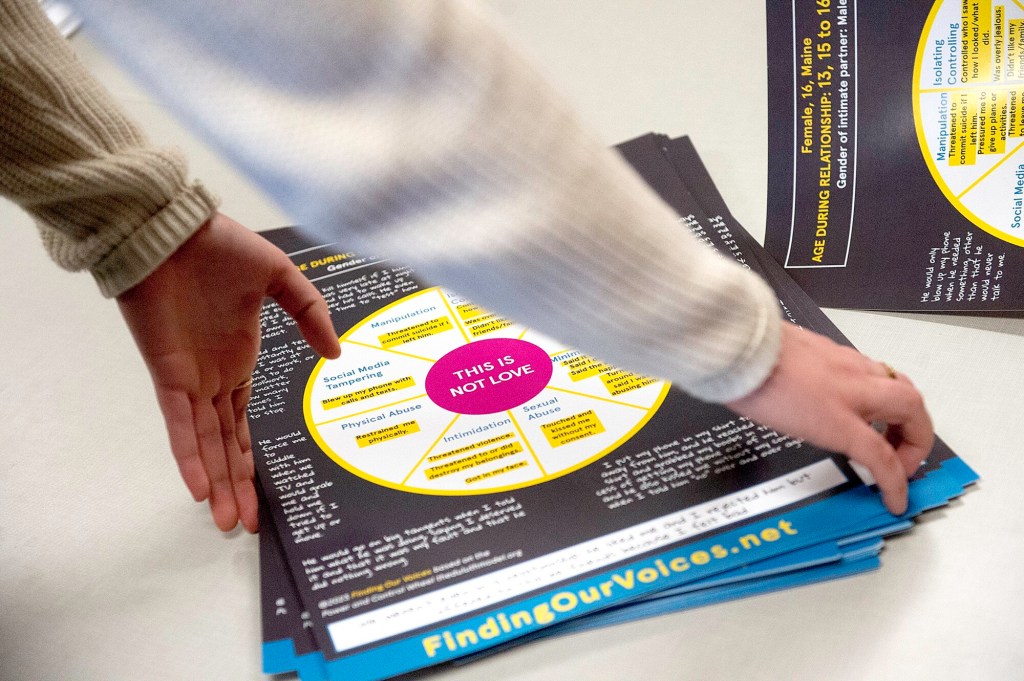
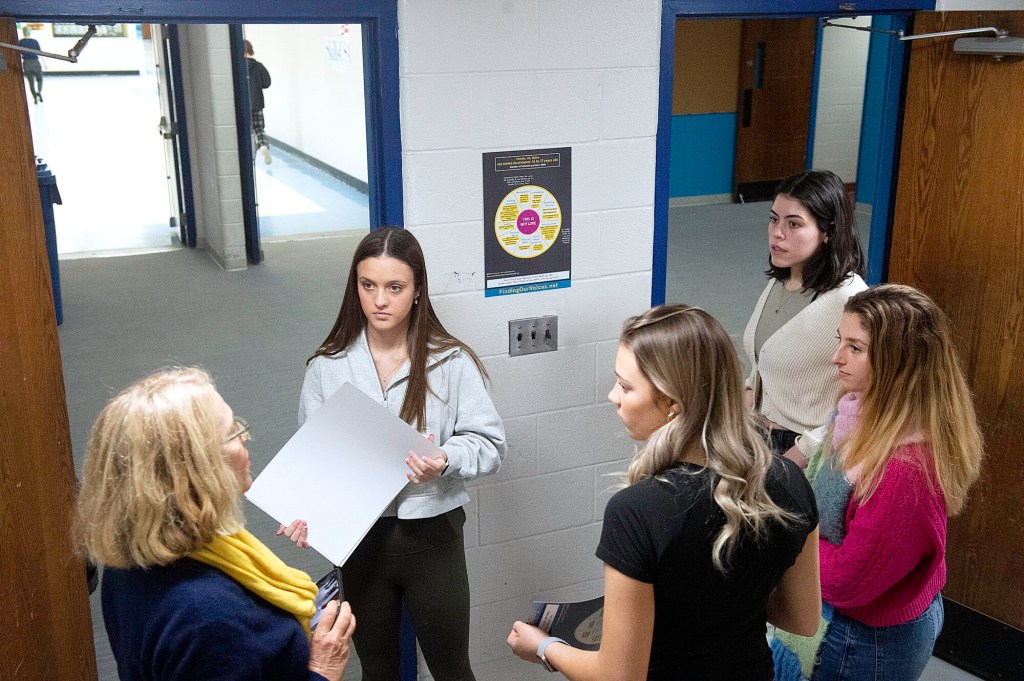

Success. Please wait for the page to reload. If the page does not reload within 5 seconds, please refresh the page.
Enter your email and password to access comments.
Hi, to comment on stories you must . This profile is in addition to your subscription and website login.
Already have a commenting profile? .
Invalid username/password.
Please check your email to confirm and complete your registration.
Only subscribers are eligible to post comments. Please subscribe or login first for digital access. Here’s why.
Use the form below to reset your password. When you've submitted your account email, we will send an email with a reset code.